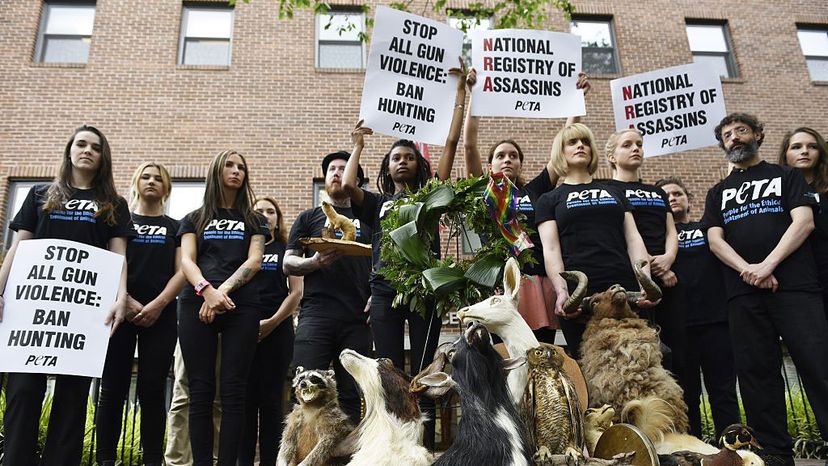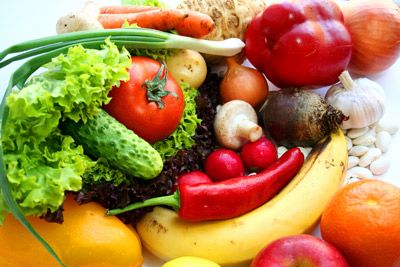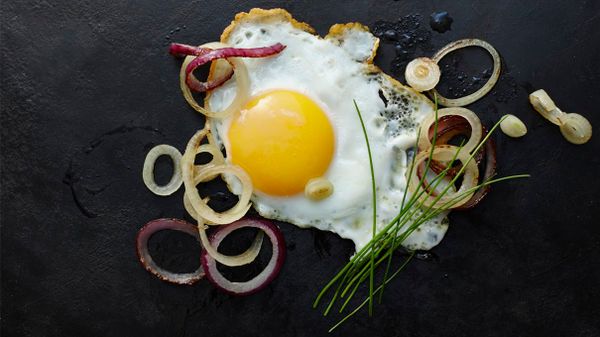
Meat is masculine. And eating it proves you're one tough dude. At least that's what the American media tells us. And that message's pervasiveness might be one reason the vast majority of vegans in the U.S. are women, say Emilie Aries and Bridget Todd. The co-hosts of the podcast Stuff Mom Never Told You explored veganism's link with women in a recent episode called "V is for Veganism."
According to the Vegan Society definition, which the co-hosts quote, "Veganism is a way of living which seeks to exclude, as far as is possible and practicable, all forms of exploitation of, and cruelty to, animals for food, clothing or any other purpose." So in addition to not eating meat, vegans typically don't eat dairy products nor wear leather or fur.
Advertisement
Emilie and Bridget say veganism is currently surging in popularity in meat-eating countries. In the U.K., for example, there has been a 350 percent increase in people adopting a plant-based diet and lifestyle, a trend largely driven by the young. And in the U.S., the number of vegans has more than doubled over the last few years, to about 1 million folks, or 2 percent of the population.
But while America's vegetarians are almost evenly split among males and females -- 41 percent versus 59 percent -- a whopping 79 percent of U.S. vegans are women. Why this is so isn't known. But there are some theories.
One is that males are hesitant to adopt a vegan lifestyle because meat is considered masculine, tied up with the trope of "man as hunter." In ads and popular culture, males are the ones pictured "manning" the grill, or shown devouring thick steaks. Meat is also given sexual connotations. For years, burger chain Carl's, Jr./Hardee's ran commercials featuring beautiful, scantily clad women suggestively noshing on its hamburgers. (The controversial spots, dubbed "slutburger" ads by Gawker, were discontinued early in 2017.)
Of course, if meat's masculinity is preventing men from becoming vegans, it should also prevent them from becoming vegetarians. That hasn't happened, so something more must be going on. Another reason involves feminism. Emilie, who went vegan 18 months ago, says feminism involves seeing a woman as a whole human being, and not just a sum of her parts. Yet, we dehumanize animals by buying them in parts in the grocery store. "Bacon is not bacon," she says. "Bacon is a pig rear-end." But if you call it what it is, a lot of people would not buy it. Women may be more likely to recognize this feminist concept, Emilie says, and thus be more compelled to give veganism a try.
One alarming theory that may lie behind veganism's popularity with women is that it could be seen as a way to hide disordered eating. With far more females than males suffering from eating disorders, adopting a vegan menu could appeal to girls and young women wishing to surreptitiously limit food intake.
No matter the reason for this intriguing statistic on women vegans, there are a few important takeaways. First, the medical community worldwide agrees a plant-based diet is the healthiest one. And -- men take note -- there is also medical evidence that heavy meat consumption can clog arteries, hampering blood flow to all organs. So ironically, erectile dysfunction is linked to meat.
Meat-eating — i.e., the farming of animals — also contributes 40 percent more to global warming than all transport combined, another negative. Still not persuaded? Then consider this: It's hip to be vegan. If you adopt this lifestyle, you'll be joining folks such as Ellen DeGeneres, Usher and Alec Baldwin.
To find out more about this topic — as well as Emilie's experiences with veganism — download "V is for Veganism."
Advertisement

